Every student has different learning needs because the intelligence quotient of every student is different. Someone might be capable of learning three chapters in a day, while someone else might get stuck on the first topic itself! That is why adaptive learning technology is used to match the learning pace of individual students.
Adaptive learning solutions have many benefits. However implementing them requires a culmination of Artificial Intelligence and Machine Learning algorithms, which are tricky and require intensive training.
So, if you intend to know more about Adaptive Learning technology, how it can be implemented, what are its benefits, and everything else, this blog is for you. Let’s get started!
What is Adaptive Learning?
In adaptive learning, the courses can “adapt” themselves to the pace and learning needs of the individual learners. In a way, you can say that these courses are customized to cater to the specific needs of the learners.
Technically, adaptive learning platforms rely heavily on machine learning and artificial intelligence. These AI and ML algorithms are capable of scrutinizing the entire learning trajectory of the learners in real time.
So, when the student learns a new topic, multiple questions are asked to him at frequent intervals. Based on his responses, the system decides his pace of learning and customizes the course as per his level of understanding. Let’s take a look at the working of adaptive learning in detail.
How Does Adaptive Learning Work?
Adaptive Learning works on the basis of the response it receives from its learners! Actually, these responses act as a training data set for the underlying ML algorithm, that forms the base of any adaptive learning platform.
Now you may ask, what’s so complicated in it? It is the algorithm that is being used!
Adaptive learning systems operate on a special set of Machine Learning algorithms called Adaptive Machine Learning (or Adaptive ML). Its operation is somewhat similar to Reinforcement Learning.
Adaptive ML specializes in collecting real-time data from the users, analyzing it, and delivering the output in real-time. It does not have a pre-determined data set as supervised and unsupervised learning.
So, when the students enter the responses in the form of answers to the questions, they act as data for the algorithm. The algorithm gathers this data and passes it through the adaptation engine, which essentially comprises an adaptive navigation engine and a recommendation system.
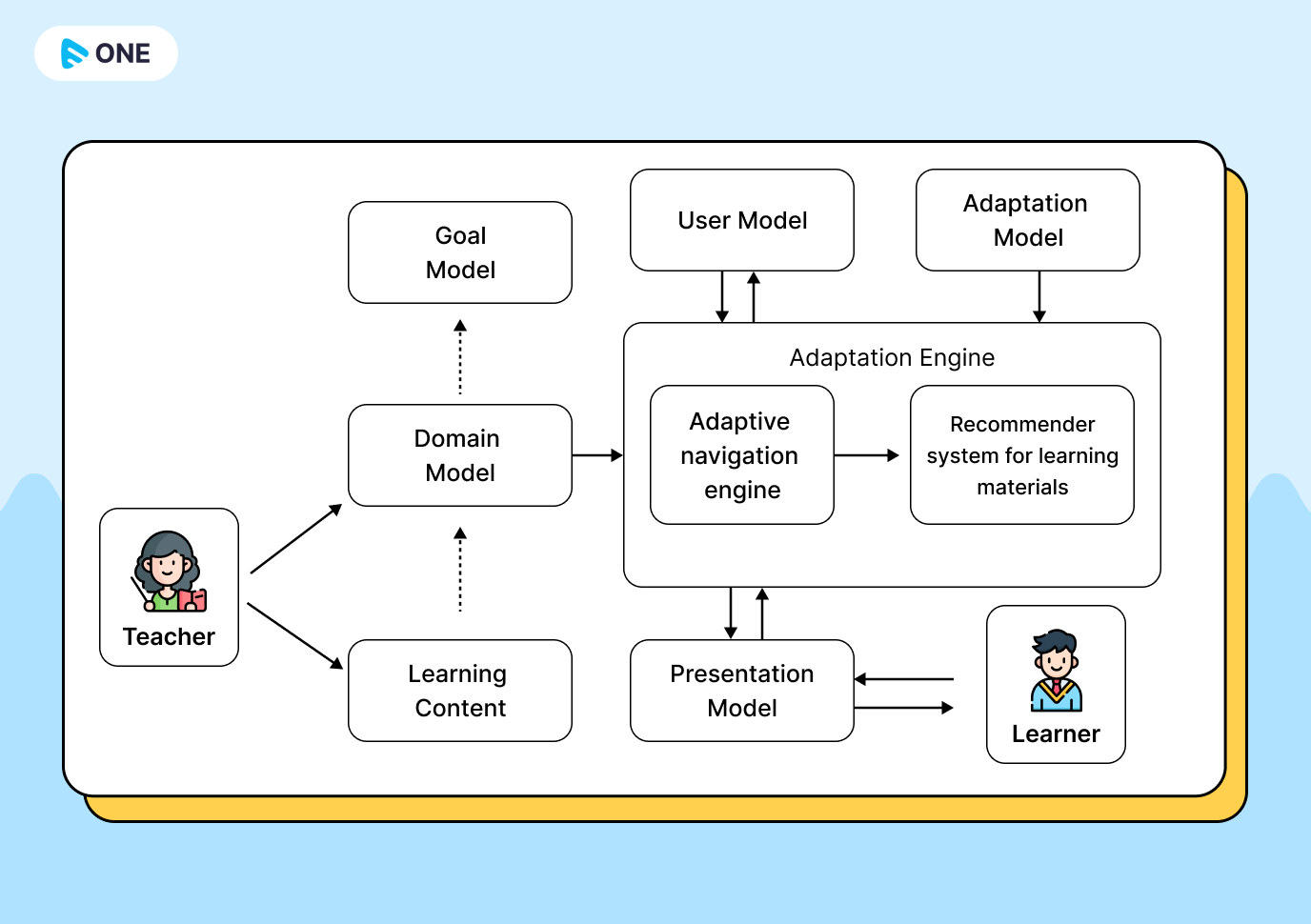
The adaptation engine recommends the best-suited lesson for the learner based on the response given. So, the learner gets to learn the recommended topic, which helps them clear their previous doubts. Hence, they are not forced to learn new topics without understanding the previous topics completely.
Why Adaptive Learning? – Major Benefits
Adaptive learning is the need of the hour, as it focuses on delivering student-centric learning courses, that can fill all the learning gaps of the learners. It has multiple benefits for the students, some of which are listed below.
Learning at Your Own Pace
If the learner has doubts about the previous topics, the course will not jump to the next topic. Rather, the adaptive ML will make sure that the learner gets an ample number of revisions and repeated attempts on the previously answered questions, till they can solve them easily. Hence, these online learning courses will teach the students at a pace that is right for them.
Measurable Progress
Adaptive learning systems measure the learning progress of the learners at every single step. And when the learners make significant progress, the system awards them with badges and rewards too!
Less Tress and More Satisfaction
When doubts are left unanswered, it leads to mental stress for the students. Adaptive learning makes sure that the learners are never trapped in such doubt and stress cycles, making learning stress-free and enjoyable for them. Hence, it increases the overall satisfaction of the learners.
Better Understanding of Concepts
Since the students get to revise the difficult concepts multiple times and get recommended with the right topic at the right time, they understand the topics more easily.
Building Confidence
A clear understanding of the concepts boosts the confidence of the learners. They become more confident in what they are learning and how to apply this knowledge.
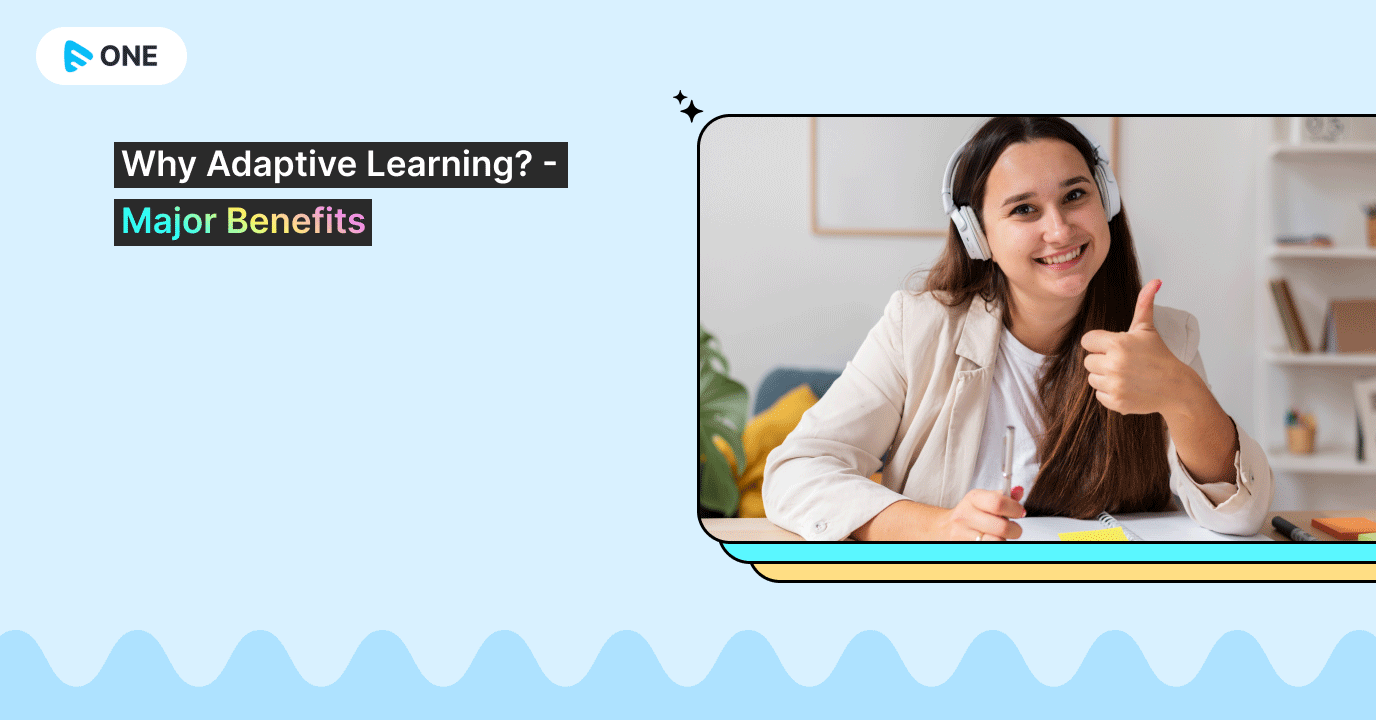
What Technologies Are Used in Adaptive Learning
Along with the machine learning algorithms, the adaptive learning platforms also use artificial intelligence and AR-VR.
Machine Learning Algorithms
Machine learning algorithms like Reinforcement learning and adaptive ML are heavily used by adaptive learning platforms. But many don’t know that some of these platforms also use a recommendation engine as the inner core of their adaptation engine.
Artificial Intelligence
The artificial learning algorithms go hand-in-hand with the Adaptive ML that helps the system analyze the response of the students.
AR-VR
To make learning even more fun, some of the adaptive learning platforms integrate Augmented and Virtual Reality (AR-VR)
What Makes A Good Adaptive Learning Program?
A good adaptive learning program involves the perfect mix of the right questions asked at the right time, and processed by the right recommendation engine, to deliver the right content.
Yes, adaptive learning involves so many boxes to be ticked! Let’s walk you through them one by one.
The Right Recommendation Engine
A lot depends on the recommendation engine. The choice of chapters and courses displayed and delivered to the learners will be managed by the recommendation engine. Hence, the recommendation engine must be efficient enough to deliver the right topics.
The Right Content
Content is very important for adaptive learning. It is a bit different from normal online courses, where the topics are decided based on the instructor’s preferences only. However while developing an adaptive learning course, the instructor must think from the perspective of the students.
The chapters should be short, crisp, straightforward, and understandable. It should relate perfectly to the topics that were discussed before and the topics that will be covered further in the course.
The Right Assessment Points
Assessment points are the most important aspect of any adaptive learning course. Placing the right questions at the right time helps you determine the learning gaps of the learners. If the questions are not comprehensive, there are chances that some doubts might remain undetected.
Best Adaptive Learning Platform in 2023
There are many different types of Adaptive learning platforms such as EssayGPT available in the market nowadays, but each of them has its own pros and cons. We have handpicked the top 4 adaptive learning platforms of 2023.
1. CogBooks
CogBooks believes in delivering a fully personalized learning experience to learners. That is why, they create specialized products and 1:1 support to cater to the individual needs of every single learner. They also offer ready-made courses on multiple vertices, including Agricultural Science, Biological Science, Business, History, Mathematics, Philosophy, Physics, and Psychology.
Major Benefits
- Fully personalized learning
- Readymade courses
- Professional solution for universities and institutions
2. Realizeit
Realizeit focuses on a performance-oriented learning experience to improve the overall performance of the learners. It mixes Artificial Intelligence with Adaptive Learning to develop individualized skill-building experiences. Hence, it focuses on both the process and the outcome.
Major Benefits
- Result-oriented
- Fully personalized
- Suitable for both institutions and organizations
3. Pearson Interactive Labs
Pearson interactive labs are one of its kind, personalized laboratory experience for Science students, that focuses on learning by doing. Without going into any physical labs, the students can experience the best of scientific experimentation, which helps them understand the concepts by performing the experiments themselves.
Major Benefits
- Helps in making Science easy to understand.
- Reduces the dependency on physical laboratories.
4. Smart Sparrows
Smart Sparrows create engaging learning courses for the clients, based on their needs. They focus on bringing out better learning outcomes by filling the learning gaps. It is more of an ed-tech service platform that offers different types of learning services, along with adaptive learning services.
Major Benefits
- Learner-centered instruction design.
- Cater to all project sizes.
Build Your eLearning Platform with Muvi One eLearning
If you do not want to use any pre-developed learning platform and want to create one of your own, then Muvi One is here for you! Muvi One’s eLearning module will help you create your very own eLearning platform without writing a single line of code! You just need to follow some simple steps given below.
1. Sign Up with Muvi One.
2. Login to your Muvi One dashboard.
3. Activate the eLearning module from the content management section of Muvi One.
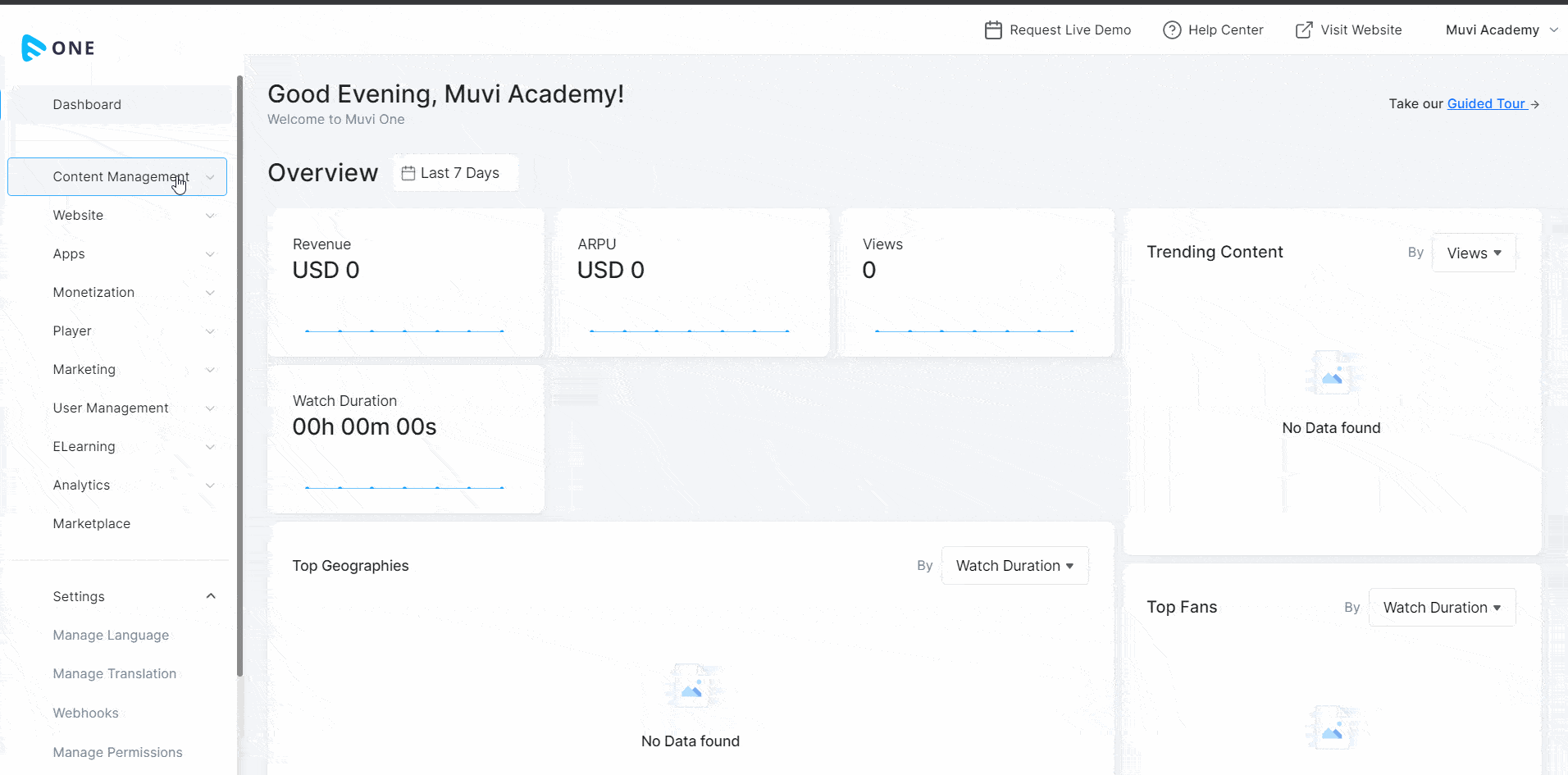
4. Choose the Citrine design template for your platform, and click on Customize to enter Visual Designer.
5. Using the Visual Designer, design your front end and add your brand logo and other brand identities. Save and Publish the design once done.
6. Now, come back to the CMS, and click on Add Content to add your eLearning course.
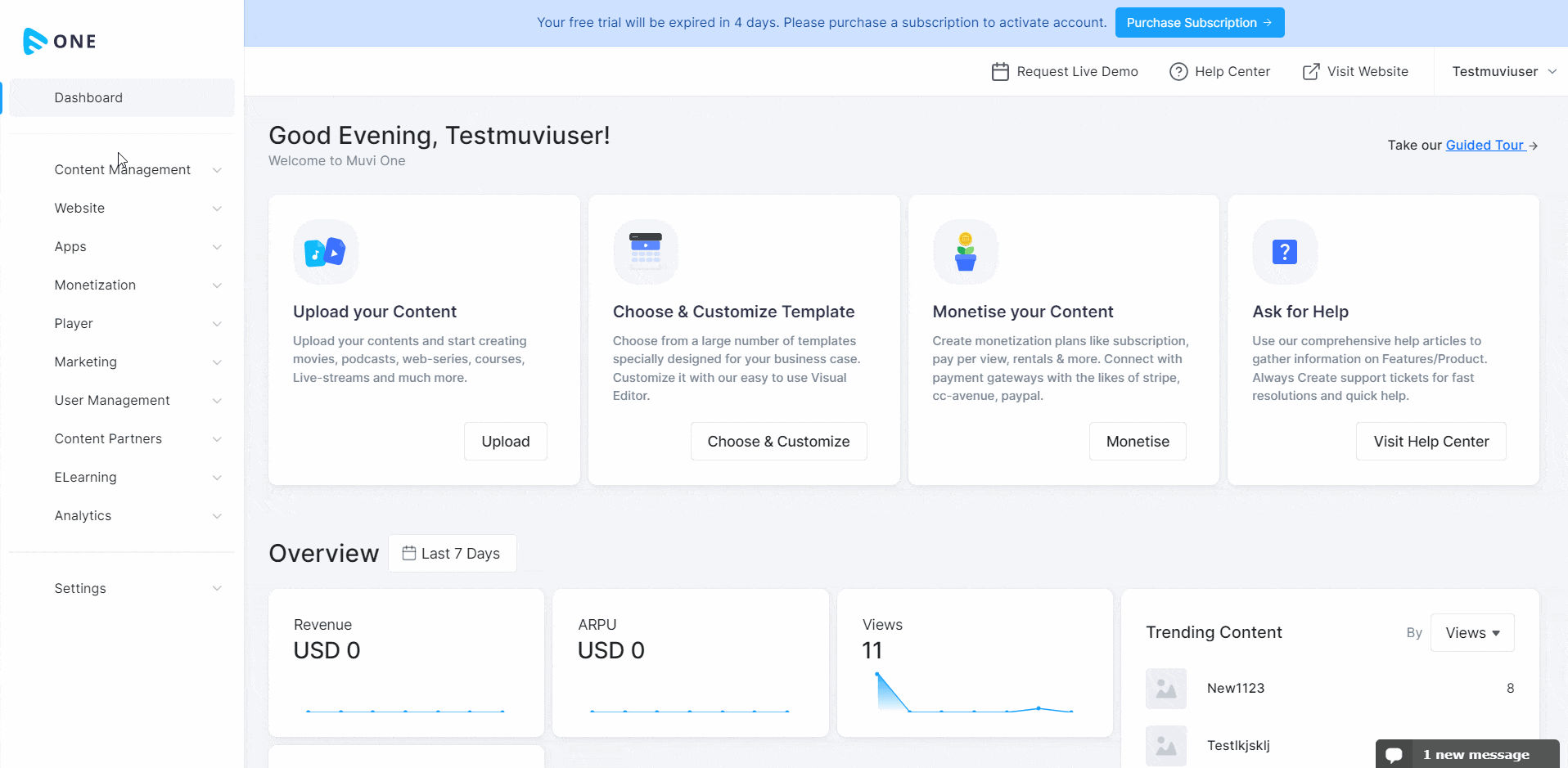
4. After adding the main course, you will get the option to add chapters. Add relevant chapters to expand your course.
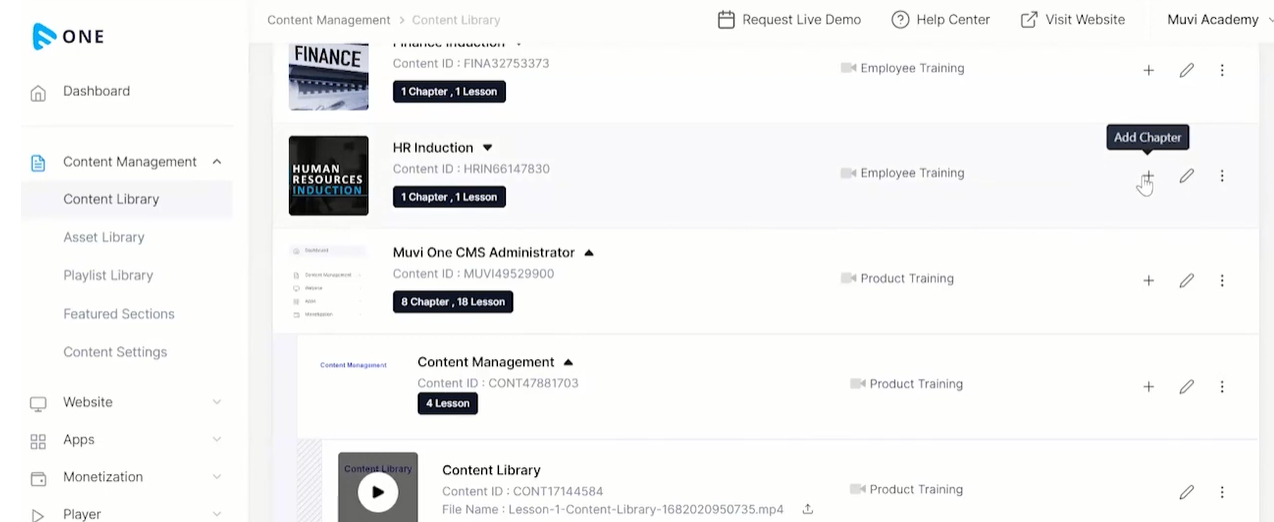
5. Once all the chapters are added, go to the “Manage Course” section.
6. From the Manage Course section, you can add quizzes and certificates. You can add as many courses as you want, to test the learning and understanding of your learners.
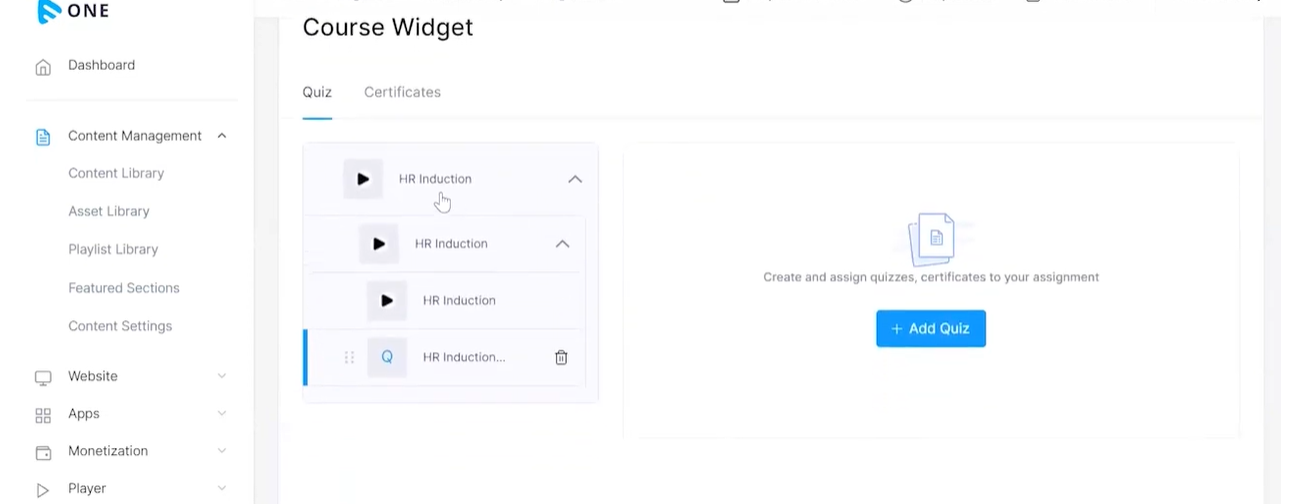
You are now ready to launch your first eLearning course on your own eLearning platform.
Conclusion
Adaptive learning makes eLearning more efficient by adjusting the pace of the course as per the learning capacity of the learners. Thus, it improves the learning outcomes, makes the courses understandable and engaging, and boosts the confidence of the learners.
In any case, eLearning is the norm going forward. And if you want to start your own eLearning platform, look no further than Muvi One! Packed with 100+ industry-leading features, Muvi One lets you develop a complete end-to-end eLearning platform within minutes.
Some of our major features include:
- Built-in multi-DRM security.
- Built-in CDN
- App Development for 16+ OS environments
- DVR-Enabled Live Streaming
- Adaptive Bitrate Streaming
- Multiple Encoding Profiles
And a lot more!
So, why wait? Sign up to start your 14-day free trial today!
FAQs
What is adaptive learning?
In adaptive learning, the courses get adjusted based on the responses received by the students in real-time.
How is Adaptive Learning different from traditional education methods?
Traditional learning methods follow static learning modules which remain the same for every student. On the other hand, Adaptive learning modules get adjusted as per the needs of the individual students.
Why is adaptive learning considered a game-changer in modern education?
Adaptive learning makes learning more engaging by making the lessons more understandable and interactive. The students get to learn at their own pace, hence their understanding increases.
What role does data play in the success of adaptive learning systems?
Data plays a huge role in adaptive learning systems. The feedback data received from the students help the adaptive learning algorithms in deciding further course content.
More Blogs to Read:

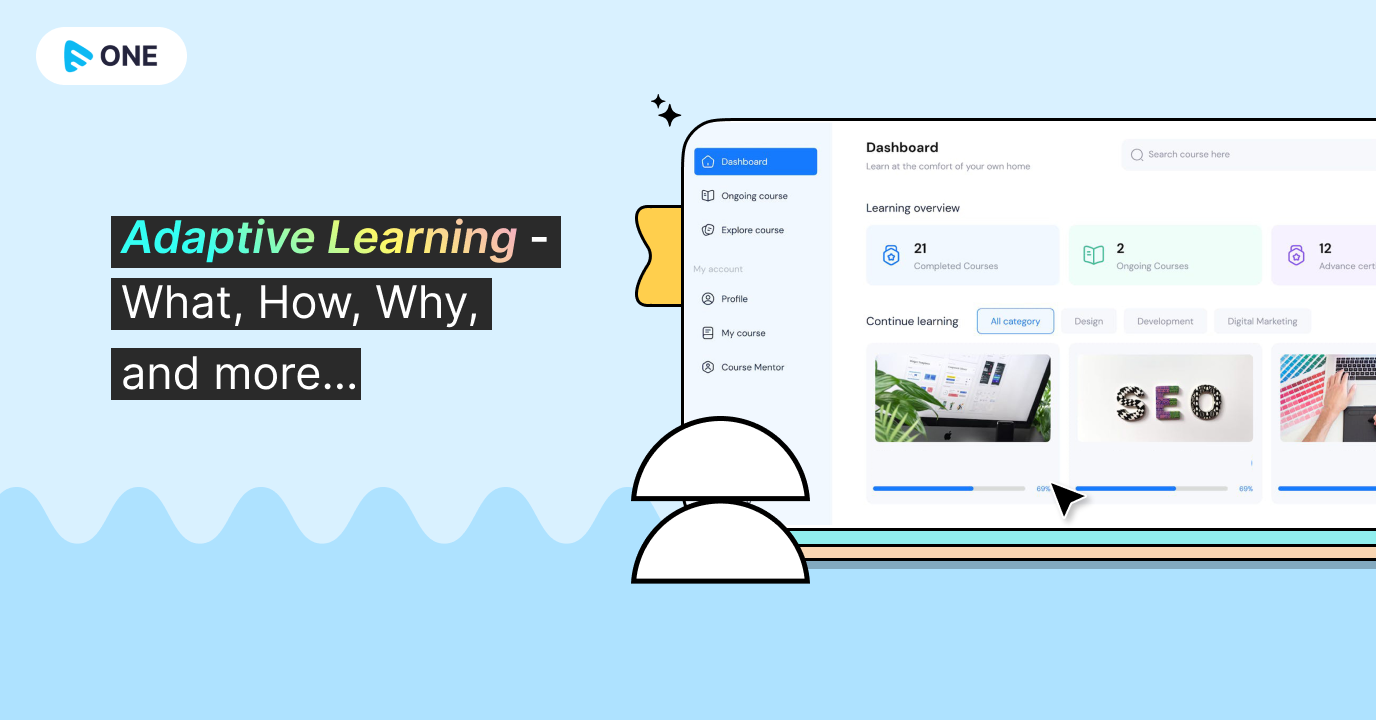








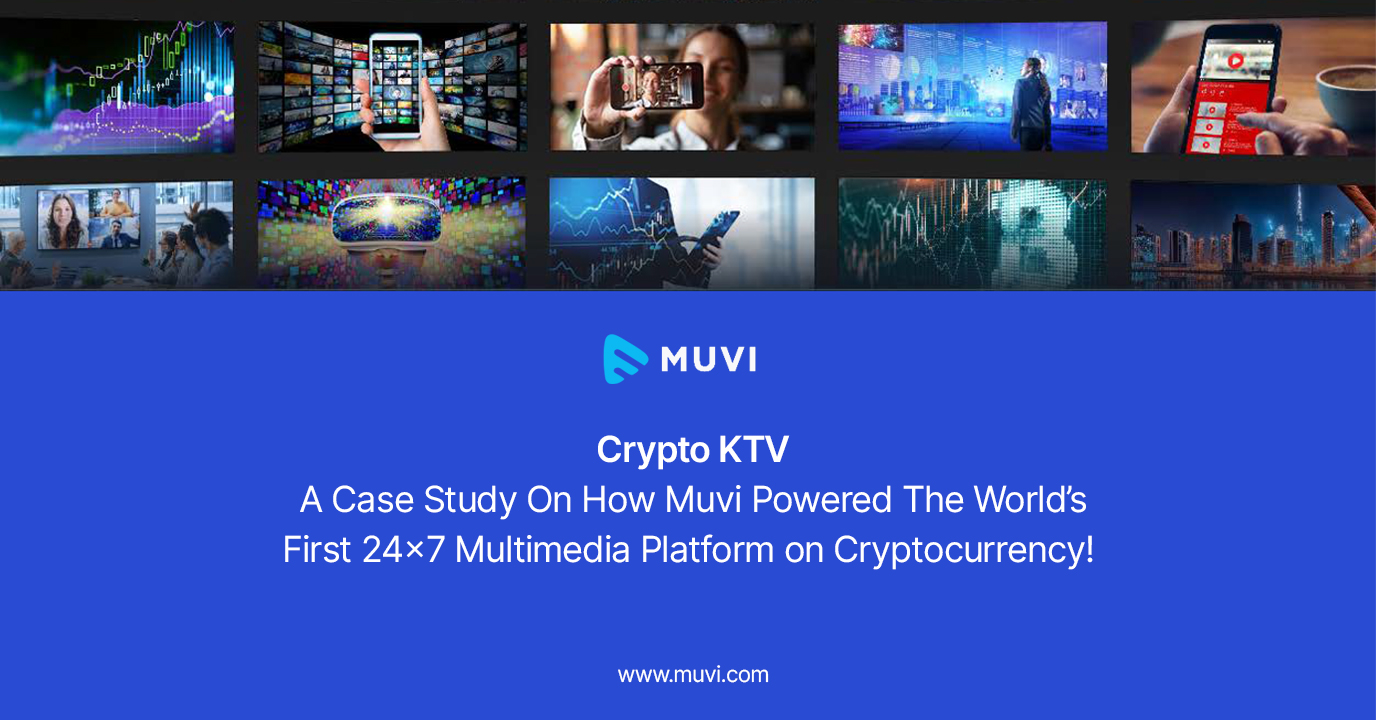
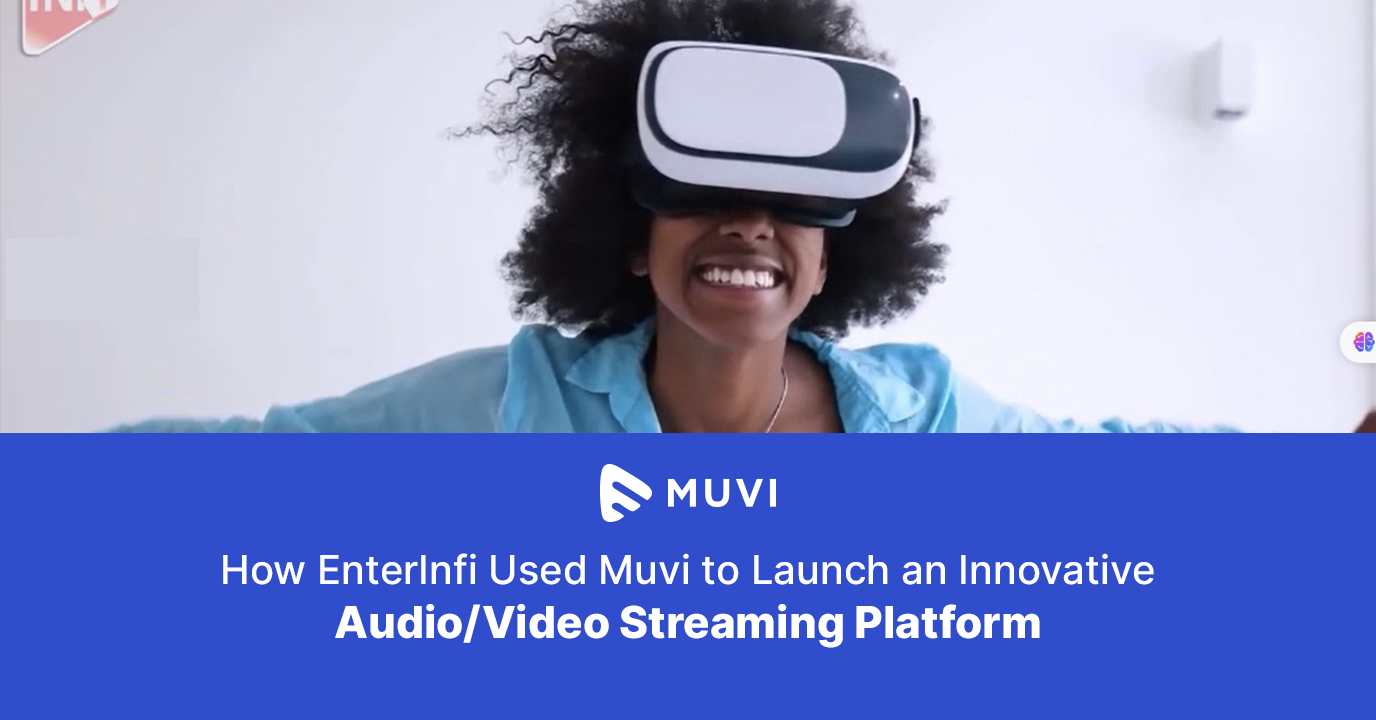
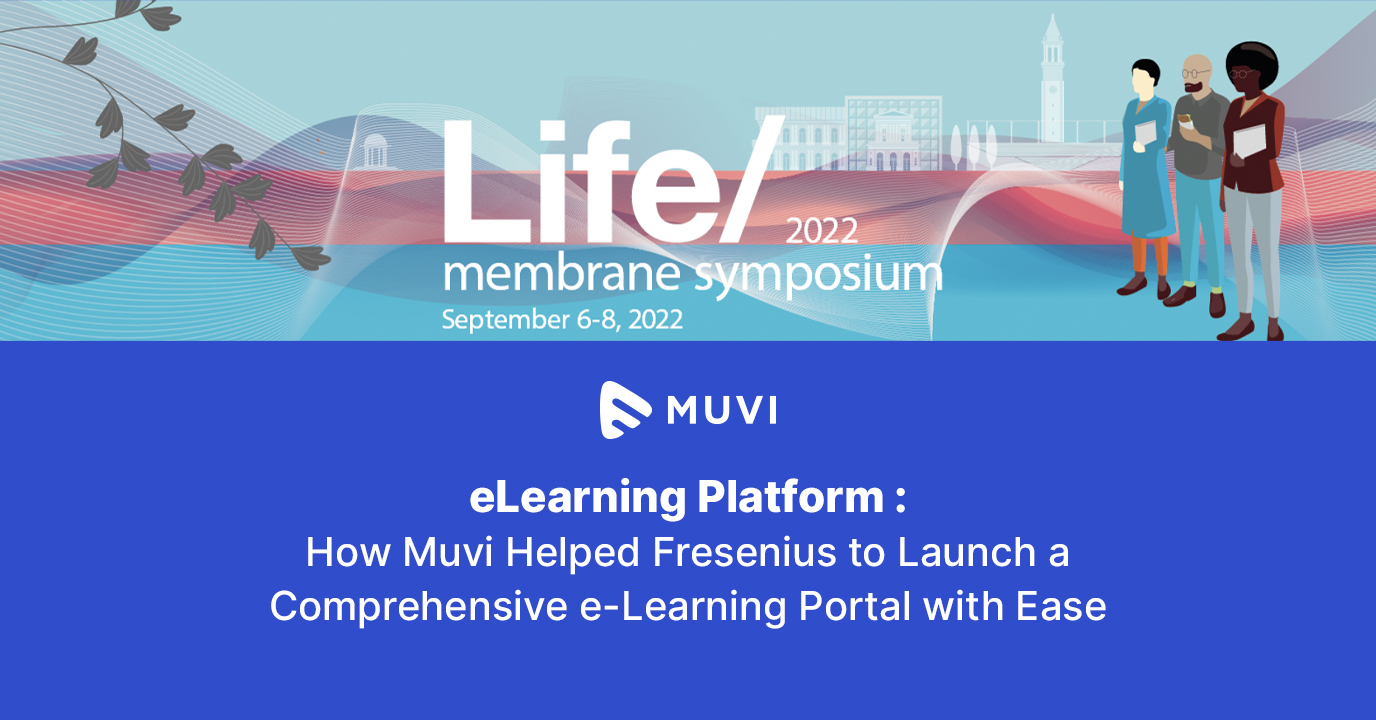




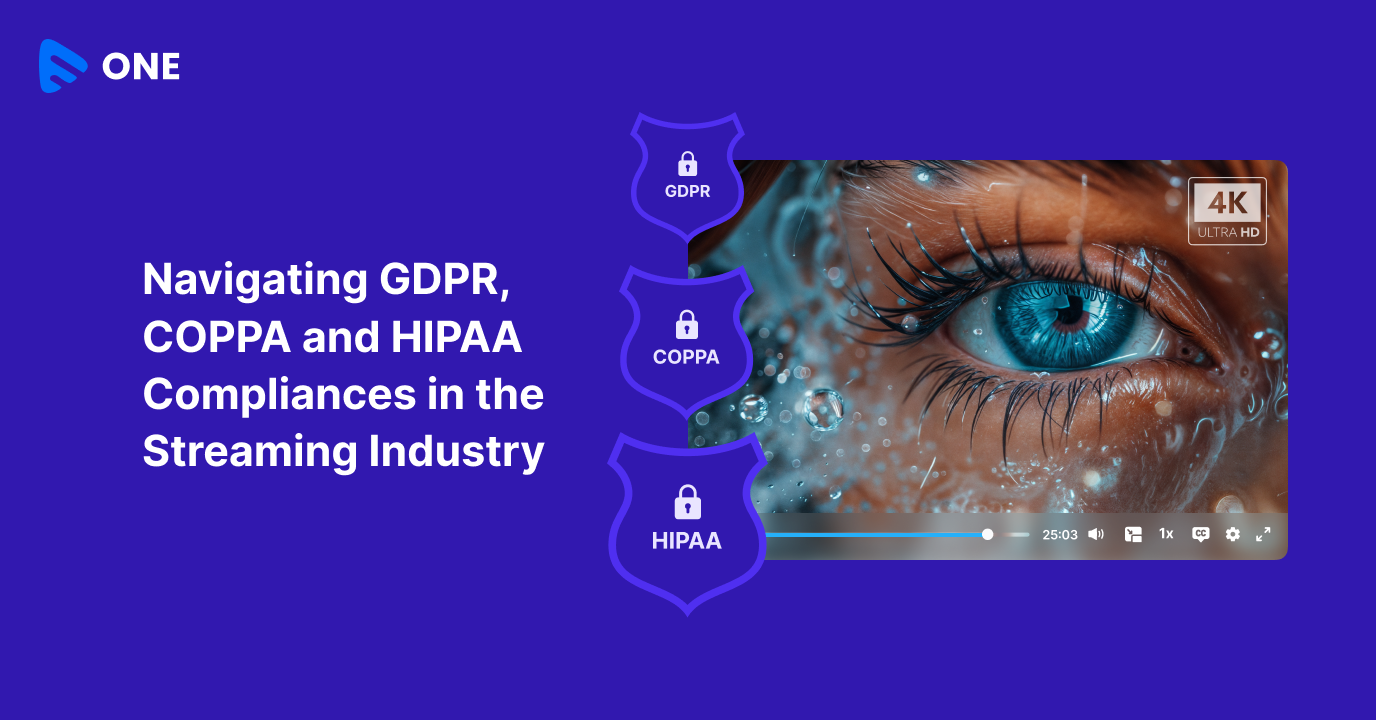
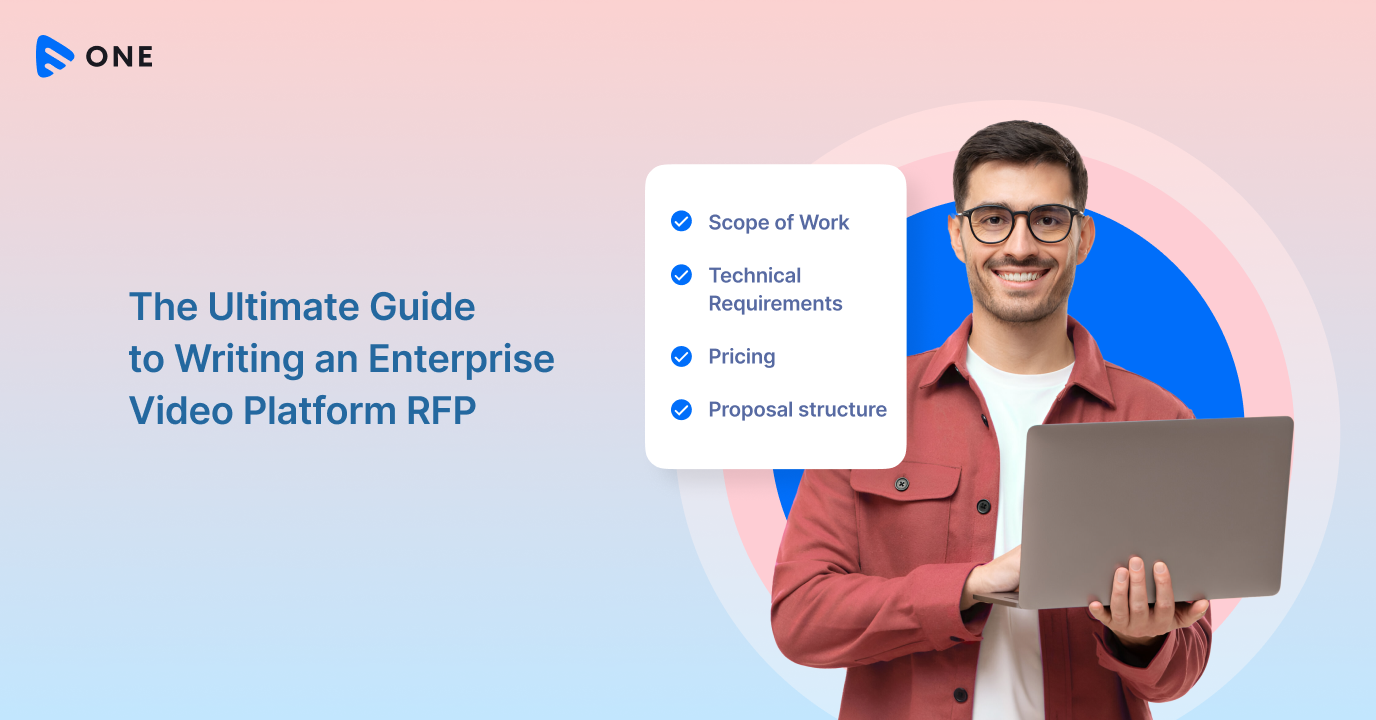
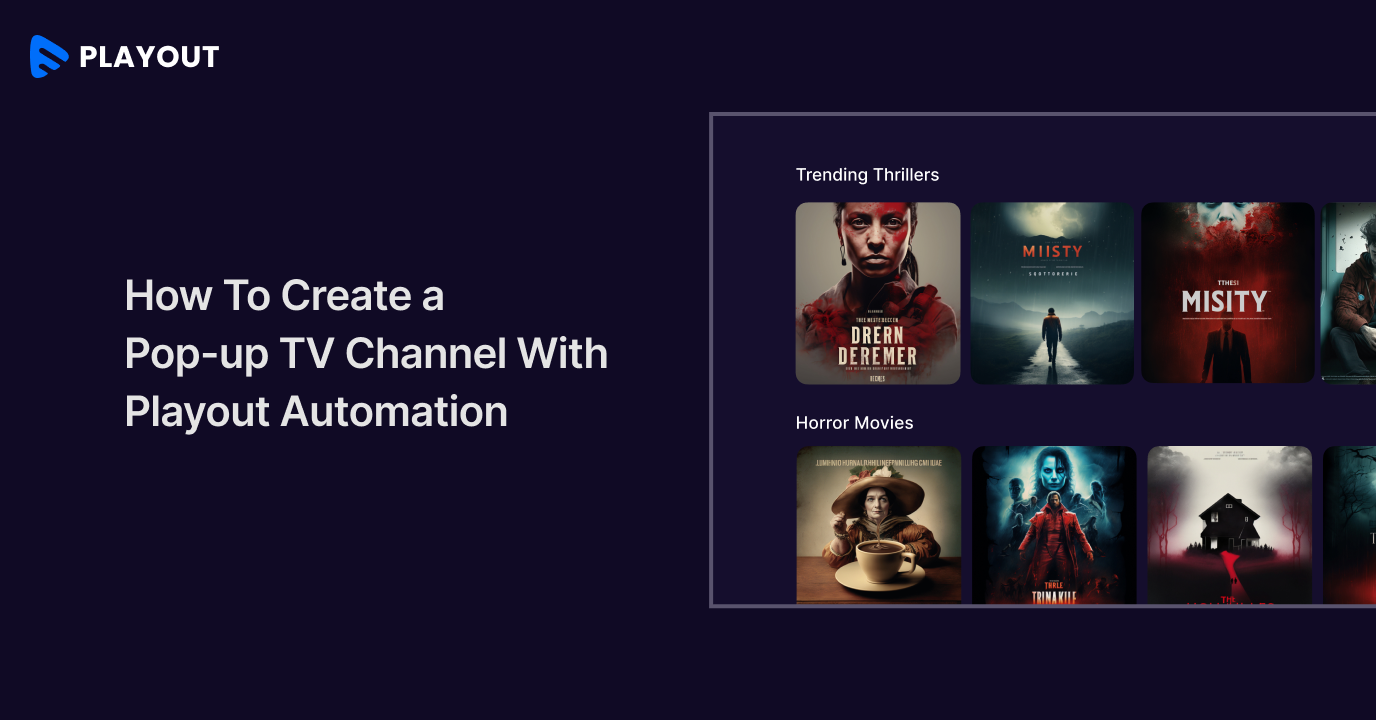



Add your comment